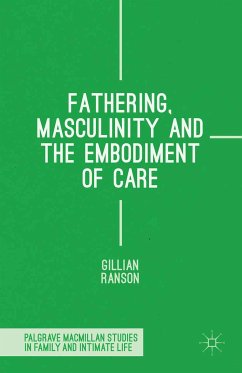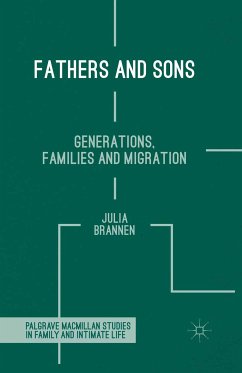
Fathering, Masculinity and the Embodiment of Care (eBook, PDF)
Versandkostenfrei!
Sofort per Download lieferbar
72,95 €
inkl. MwSt.
Weitere Ausgaben:

PAYBACK Punkte
36 °P sammeln!
Many fathers are now providing hands-on, engaged care to babies and young children. This book draws on observations of, and interviews with, caregiving fathers, as well as analyses of fathers' memoirs and online blogs, to examine fathers' caregiving work as embodied practice and as lived experience.
Dieser Download kann aus rechtlichen Gründen nur mit Rechnungsadresse in A, B, BG, CY, CZ, D, DK, EW, E, FIN, F, GR, HR, H, IRL, I, LT, L, LR, M, NL, PL, P, R, S, SLO, SK ausgeliefert werden.












